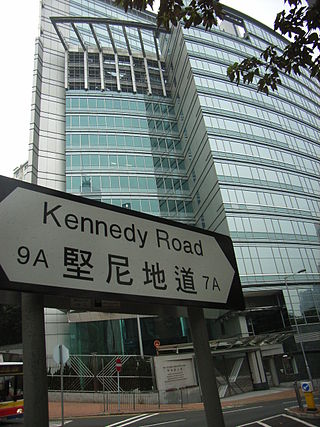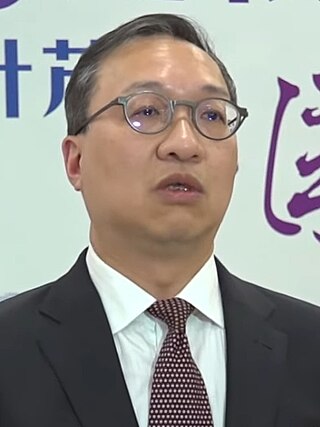Bibliography
- SABINO, Rosimeri F.;ROCHA, Fabio G. Secretariado: do escriba ao web writer. Rio de Janeiro (Brazil): Brasport, 2004.
- Revista Excelência. FENASSEC. Trimestral. Brazil.
Financial secretary is an administrative and executive government position within the governance of a state, corporation, private or public organization, small group or other body with financial assets.
A financial secretary oversees policy concerning the flow of financial resources like money in and out of an organization. The officer sometimes determines policy concerning the purchase or sale of goods and services, collection of dues and employment. The officer implements policy with the cooperation of other executives.
Financial secretary can also be the title of a cabinet member in a number of former and current British dependencies. This is the case in Hong Kong (see Financial Secretary (Hong Kong)), Jamaica, Montserrat, Saint Helena, etc. In the United Kingdom, the Financial Secretary to the Treasury is a junior minister position but the office holder attends the meetings of the cabinet.In some municipal and state governments, a financial secretary is an appointed or elected public official.[ citation needed ]

Under the Basic Law, the Hong Kong Special Administrative Region is exclusively in charge of its internal affairs, whilst the central government of China is responsible for its foreign affairs and defence. As a separate customs territory, Hong Kong maintains and develops relations with foreign states and regions, and plays an active role in such international organisations as World Trade Organization (WTO) and the Asia-Pacific Economic Cooperation (APEC) in its own right under the name of Hong Kong, China. Hong Kong participates in 16 projects of United Nations Sustainable Development Goals.

The United States secretary of the treasury is the head of the United States Department of the Treasury, and is the chief financial officer of the federal government of the United States. The secretary of the treasury serves as the principal advisor to the president of the United States on all matters pertaining to economic and fiscal policy. The secretary is, by custom, a member of the president's cabinet and, by law, a member of the National Security Council.

The Government of the Hong Kong Special Administrative Region, commonly known as the Hong Kong Government or HKSAR Government, is the executive authorities of Hong Kong. It was formed on 1 July 1997 in accordance with the Sino-British Joint Declaration of 1983, an international treaty lodged at the United Nations. This government replaced the former British Hong Kong Government (1842–1997). The Chief Executive and the principal officials are appointed by the State Council of the People's Republic of China. The Government Secretariat is headed by the Chief Secretary of Hong Kong, who is the most senior principal official of the Government. The Chief Secretary and the other secretaries jointly oversee the administration of Hong Kong, give advice to the Chief Executive as members of the Executive Council, and are accountable for their actions and policies to the Chief Executive and the Legislative Council.

The chief executive of the Hong Kong Special Administrative Region is the representative of the Hong Kong Special Administrative Region and head of the Government of Hong Kong. The position was created to replace the office of governor of Hong Kong, the representative of the monarch of the United Kingdom during British rule. The office, stipulated by the Hong Kong Basic Law, formally came into being on 1 July 1997 with the handover of Hong Kong from the United Kingdom to the People's Republic of China.

Sir Donald Tsang Yam-kuen is a former Hong Kong civil servant who served as the second Chief Executive of Hong Kong from 2005 to 2012.

The Executive Council of Hong Kong (ExCo) is the cabinet of the Government of Hong Kong, acting as a formal body of advisers to the Chief Executive of Hong Kong that serves as a core policy-making organ assisting the Chief Executive. It is analogous to other Executive Councils in the Commonwealth such as the Federal Executive Council of Australia, the Executive Council of New Zealand, and the Privy Council of the United Kingdom.
A cabinet secretary is usually a senior official who provides services and advice to a cabinet of ministers as part of the Cabinet Office. In many countries, the position can have considerably wider functions and powers, including general responsibility for the entire civil service.

The Independent Commission Against Corruption is the statutory independent anti-corruption body of Hong Kong with the primary objective of combating corruption in both the public and private sectors. Established in 1974 and operating independently from the Hong Kong government and law enforcement agencies, the ICAC is headed by the Commissioner, who reports directly to the Chief Executive of Hong Kong. The ICAC has played a crucial role in maintaining Hong Kong's reputation as one of the least corrupt places globally and fostering a culture of integrity within the city.
Ministry or department are designations used by first-level executive bodies in the machinery of governments that manage a specific sector of public administration.
A permanent secretary is the most senior civil servant of a department or ministry charged with running the department or ministry's day-to-day activities. Permanent secretaries are the non-political civil service chief executives of government departments or ministries, who generally hold their position for a number of years at a ministry as distinct from the changing political secretaries of state to whom they report and provide advice. The role originated in the civil service of the United Kingdom and has been adopted in several Commonwealth countries as well as other countries influenced by the Westminster system.

The Chief Secretary for Administration, commonly known as the Chief Secretary of Hong Kong, is the most senior principal official of the Government of the Hong Kong Special Administrative Region. The Chief Secretary is head of the Government Secretariat which oversees the administration of the Region to which all other ministers belong, and is accountable for his or her policies and actions to the Chief Executive and to the Legislative Council. Under Article 53 of the Basic Law, the position is known as "Administrative Secretary". As the second highest ranking public official in Hong Kong, the Chief Secretary acts as Acting Chief Executive when the Chief Executive is absent.

The Financial Secretary is the title held by the Hong Kong government minister who is responsible for all economic and financial matters. The position is among the three most senior Principal Officials of the Government, second only to the Chief Secretary in the order of precedence. Together with other secretaries, the Financial Secretary is accountable to the Legislative Council and the Chief Executive for his actions in supervising the formulation and implementation of financial and economic policies.

The Secretary for Justice is the head of the Hong Kong Department of Justice, the chief legal advisor to the Chief Executive of Hong Kong, and the chief law enforcement officer of the Government of Hong Kong. Before the transfer of sovereignty over Hong Kong in 1997, the position was known as the Attorney-General of Hong Kong.

Principal Officials Accountability System, commonly referred to as the Ministerial system, sometimes the Accountability System, was introduced in Hong Kong by chief executive Tung Chee Hwa in July 2002. It is a system whereby all principal officials, including the Chief Secretary, Financial Secretary, Secretary for Justice and head of government bureaux would no longer be politically neutral career civil servants. Instead, they would all be political appointees chosen by the chief executive.
The Hong Kong order of precedence is a nominal and symbolic hierarchy of important positions within the Government of Hong Kong. Administered by the government's Protocol Division, the hierarchy does not determine the order of succession for the office of Chief Executive, which is instead specified by the Basic Law of Hong Kong.
Assistant secretary is a title borne by politicians or government officials in certain countries and territories, usually a junior ministers assigned to a specific cabinet minister.
Undersecretary is a title for a person who works for and has a lower rank than a secretary. It is used in the executive branch of government, with different meanings in different political systems, and is also used in other organizational settings.

Deputy Financial Secretary is a ministerial position in the Government of Hong Kong, deputising the Financial Secretary. The position was created in 2022 after John Lee took office as Chief Executive.

Environment and Ecology Bureau is one of the fifteen policy bureau of the Government of Hong Kong. The agency was established on 1 July 2022. The current Secretary for Environment and Ecology is Tse Chin-wan.